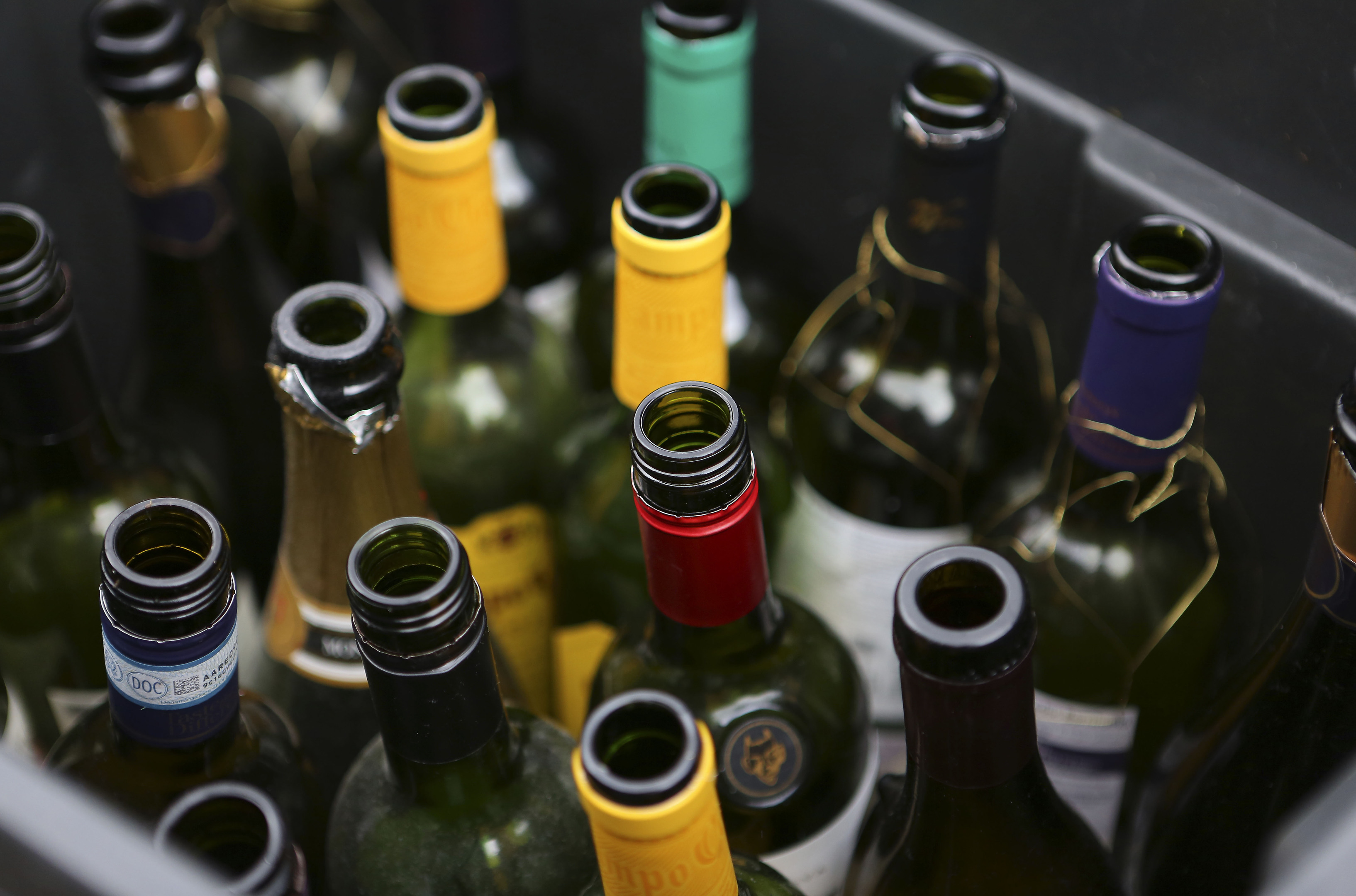
Alcohol sales in Scotland fell to the lowest level for almost quarter of a century last year, new research has found.
The total volume of pure alcohol sold per adult in 2018 was 9.9 litres – the equivalent of 19 units per person per week.
The figures from the Monitoring and Evaluating Scotland’s Alcohol Strategy (MESAS) programme were the lowest since recording began in 1994.
But deaths from alcohol are still on the rise, with the NHS Health Scotland report showing 1,120 deaths in in 2017 were “wholly attributable to alcohol” – the equivalent of 22 people dying each week.
The rate of deaths from alcohol-specific causes has risen for both men and women since 2012 – with these “consistently higher” than in England and Wales.
In 2017, just less than a quarter (24%) of adults in Scotland reported drinking fewer than 14 units of alcohol a week – the amount classed as “low risk” – down from 34% in 2003.
Across the country last year, a total of 44.7 million litres of pure alcohol were purchased – with almost three-quarters (73%) of sales made via supermarkets and off-sales and the remaining 27% in pubs, clubs and restaurants.
Although sales fell north of the border, the volume of pure alcohol sold per adult in Scotland was still 9% higher than England and Wales for 2018.
it was the smallest difference since 2003, however, with sales per adult rising in England and Wales between 2017 and 2018.
A total of 23,494 people in Scotland were admitted to hospital with an alcohol related diagnosis in 2017-18.
With some people being admitted more than once, there were 35,499 alcohol-related inpatient stays.
Despite a downward trend since 2007-08, rates of alcohol-related hospital stays remained four times higher than they were in the early 1980s, the report said.
People from the most deprived areas were more than eight times more likely to need admitting to hospital because of alcohol than those in the most affluent parts of Scotland.
Meanwhile, the poorest parts of Scotland had alcohol death rates that were more than seven times higher than those in the least deprived communities.
With minimum pricing coming into effect in May 2018, less than a quarter (23%) of all alcohol sold in shops and supermarkets last year cost less than 50p per unit – down from 47% in in 2017.
But in England and Wales more than two-fifths (42%) of all alcohol sold in off-sales cost less than this price point.
Lucie Giles, public health intelligence adviser at NHS Health Scotland, said: “With the implementation of minimum unit pricing in May 2018 we’ve seen a substantial fall in the volume of alcohol being sold at very low prices, along with the biggest rise in the average price of alcohol sold through supermarkets and off-licences in a decade.”
She added: “The report also shows that population level alcohol consumption, based on sales, is at an all-time low in Scotland.”
Health Secretary Jeane Freeman said the drop in sales was a “promising start” following the Scottish Government’s introduction of minimum pricing in May 2018.
She added: “There are, on average, 22 alcohol-specific deaths every week in Scotland and 683 hospital admissions, and behind every one of these statistics is a person, a family, and a community badly affected by alcohol harm.
“Given the clear and proven link between consumption and harm, minimum unit pricing is the most effective and efficient way to tackle the cheap, high strength alcohol that causes so much harm to so many families.”
Doctors also welcomed the reduction, with BMA Scotland chairman Dr Lewis Morrison saying: “This is a very promising and welcome start to, what I hope, is the substantial change in Scotland’s damaging relationship with alcohol that we know is needed.
“Today we have seen the volume of alcohol sold per adult in Scotland drop to its lowest level since 1994 – with a 3% drop in alcohol sales per adult in 2018, compared to the previous year.”
He added: “Minimum unit pricing is a long-term strategy and to see results like this in the first year is extremely encouraging.”
Professor Linda Bauld, Cancer Research UK’s cancer prevention expert based at the University of Edinburgh, said: “It’s good news that Scots are buying less alcohol.
“Alcohol causes around 1,100 cases of cancer every year in Scotland.
“The less alcohol you drink, the lower your risk of cancer.”

Enjoy the convenience of having The Sunday Post delivered as a digital ePaper straight to your smartphone, tablet or computer.
Subscribe for only £5.49 a month and enjoy all the benefits of the printed paper as a digital replica.
Subscribe